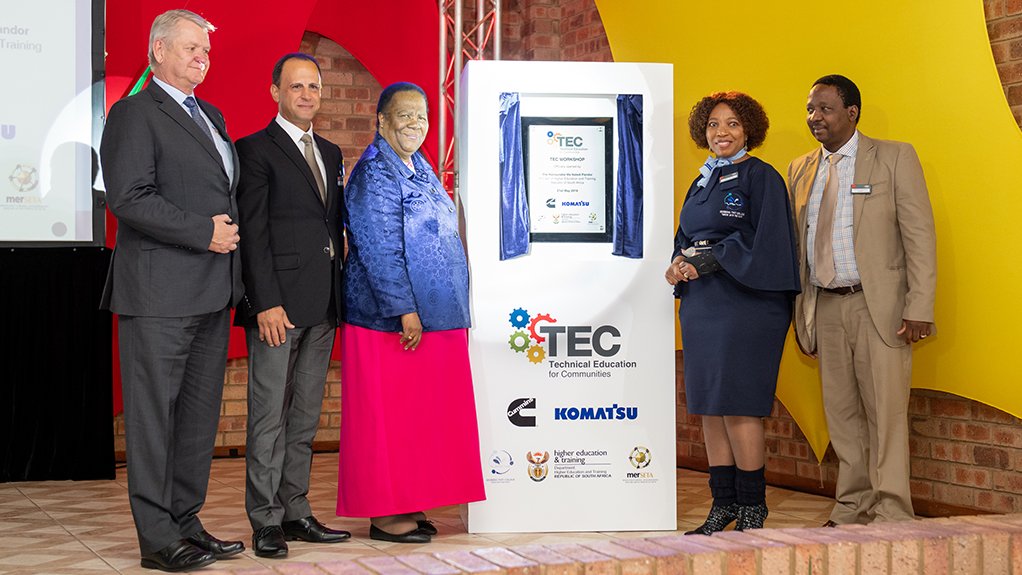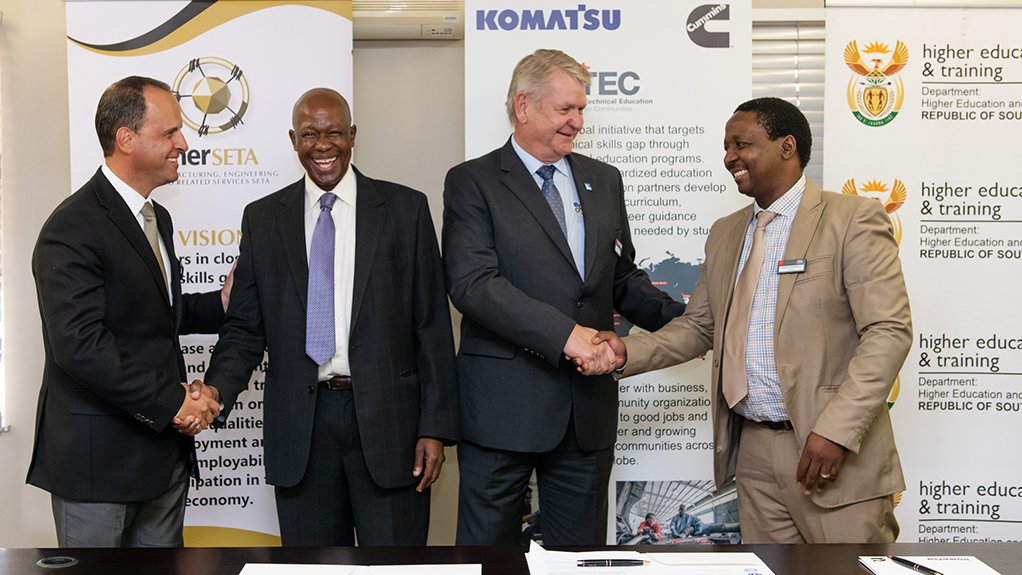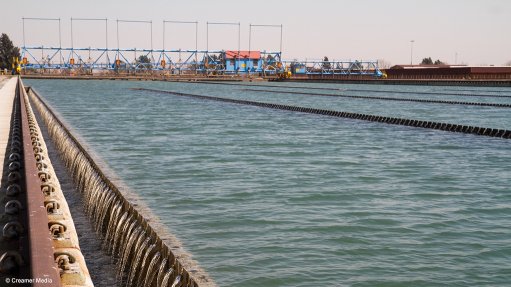TEC programme benefits local colleges, communities



HIGHER EDUCATION SUPPORT The Technical Education for Communities programme at the Sedibeng Technical and Vocational Education and Training College, in Gauteng is supported by the Department of Higher Education and Training
KEY CATALYST Artisan development plays a key role in the economy, especially in the automotive and manufacturing sectors
As vocational students were graduating with skills that were not in demand by industry, engine manufacturer Cummins and multinational corporation Komatsu have partnered at eight Technical Education for Communities (TEC) sites globally, including the South African site launched in 2017.
Locally, the TEC programme at the Sedibeng Technical and Vocational Education and Training (TVET) College, in Gauteng is supported by the Department of Higher Education and Training – forming part of the 22 schools in 13 countries to fall under the auspices of the global programme.
Cummins Africa Middle East corporate responsibility leader Christian Ndomba explains that TEC aims to build education programmes – industry-relevant vocational education and training – to teach general technical skills, including mechanical, electrical and computer skills; soft skills and basic education skills, such as literacy and numeracy, where needed.
“We want to teach skills that will lead to jobs with any employer that needs workers with technical proficiency, thereby improving individual and family standards of living in global communities. The curriculum is tweaked to align with the latest industry trends, from a hard and soft skills standpoint,” he notes.
He highlights that some of the key positives of the TEC programme are that the curriculum is aimed at developing graduates who can be successful in a variety of locally relevant occupations.
For instance, it couples core and foundational knowledge with practical skills, tailored to meet local market needs. An emphasis on hands-on skills development directly addresses the need for practical experience and employability.
Further, the TEC’s curriculum also includes soft skills training. These skills have been shown to have a tremendous impact on employment outcomes such as job performance and retention, as well as employer and learner satisfaction.
“The programme’s impact will be measured by whether graduated learners achieve a higher employment rate and income level, compared with learners studying through other vocational programmes,” he says, adding that it is essential for a results-based approach to determine if projects are meeting intended goals and outcomes.
“So far, we have higher employment rates and salaries than the baseline. Our hypothesis has proven true in other countries where we have TEC schools and we are hopeful that the same will apply for our South African graduates.”
Moreover, Ndomba mentions that, since the global launch of the TEC initiative in 2012 – 19 schools in 11 countries, with two schools each in Morocco and Nigeria – have been established.
Sedibeng TVET College CEO and principal Dr Mamochite George Mothapo advances that artisan development plays a key role in the economy, especially in the automotive and manufacturing sectors.
He states that technical and vocational education is now recognised and acknowledged, which it was not in the past.
For example, when the Level 4 college students graduate at the end of 2020, they will enrol into an industry related Apprentice programme to become artisans and complete a trade test to be recognised as a qualified artisan in the fields of millwright, heavy equipment mechanic and engine rebuilding for off-highway and on-highway sectors. This type of technical training, he highlights, is offered only at TVET colleges.
“The programme thoroughly equips students with the experience and knowledge of recent industry technology and machines. When students graduate from the college, they would have trained on the relevant engines, which make their skills relevant to the demands of industry,” Mothapo explains.
He states that this significantly benefits the students and industry, as it will not have to retrain graduates as they enter the world of work, as is the case with many trades that are not aligned to industry trends.
“The Cummins and Komatsu partnership is a profitable partnership at the college because the students visit both companies and experience the real-life work environment for which they are going to be trained,” he enthuses.
Ndomba concludes that the programme will likely be expanded to include another local TVET college, and to other mining and industrial communities.
Article Enquiry
Email Article
Save Article
Feedback
To advertise email advertising@creamermedia.co.za or click here
Comments
Press Office
Announcements
What's On
Subscribe to improve your user experience...
Option 1 (equivalent of R125 a month):
Receive a weekly copy of Creamer Media's Engineering News & Mining Weekly magazine
(print copy for those in South Africa and e-magazine for those outside of South Africa)
Receive daily email newsletters
Access to full search results
Access archive of magazine back copies
Access to Projects in Progress
Access to ONE Research Report of your choice in PDF format
Option 2 (equivalent of R375 a month):
All benefits from Option 1
PLUS
Access to Creamer Media's Research Channel Africa for ALL Research Reports, in PDF format, on various industrial and mining sectors
including Electricity; Water; Energy Transition; Hydrogen; Roads, Rail and Ports; Coal; Gold; Platinum; Battery Metals; etc.
Already a subscriber?
Forgotten your password?
Receive weekly copy of Creamer Media's Engineering News & Mining Weekly magazine (print copy for those in South Africa and e-magazine for those outside of South Africa)
➕
Recieve daily email newsletters
➕
Access to full search results
➕
Access archive of magazine back copies
➕
Access to Projects in Progress
➕
Access to ONE Research Report of your choice in PDF format
RESEARCH CHANNEL AFRICA
R4500 (equivalent of R375 a month)
SUBSCRIBEAll benefits from Option 1
➕
Access to Creamer Media's Research Channel Africa for ALL Research Reports on various industrial and mining sectors, in PDF format, including on:
Electricity
➕
Water
➕
Energy Transition
➕
Hydrogen
➕
Roads, Rail and Ports
➕
Coal
➕
Gold
➕
Platinum
➕
Battery Metals
➕
etc.
Receive all benefits from Option 1 or Option 2 delivered to numerous people at your company
➕
Multiple User names and Passwords for simultaneous log-ins
➕
Intranet integration access to all in your organisation




















